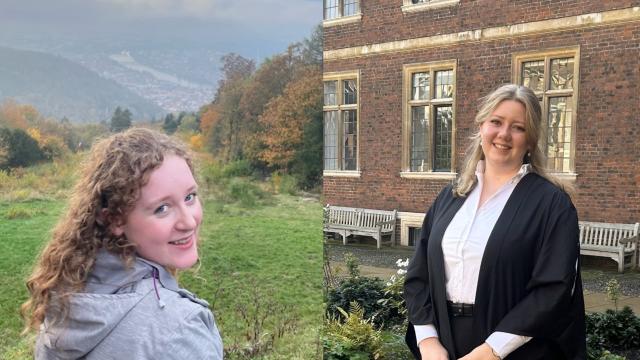
A Fellow of St Catharine’s is today launching the world’s first expert-informed charter to protect sites of the Holocaust and genocide of the Roma from unprecedented threats – ranging from Holocaust denial to climate change – so future generations can continue to remember and learn from this chapter of global history.
Dr Gilly Carr (2006), Director of Studies in Archaeology at St Catharine’s, has spent the last five years leading the development of the International Holocaust Remembrance Alliance (IHRA) Charter for Safeguarding Sites, which has identified 16 risks facing these sites and how to respond to them so vital Holocaust heritage sites can be preserved. Today she is presenting the finished Charter at a special event in Brussels organised by the European Commission ahead of International Holocaust Remembrance Day (27 January)
Dr Carr, who is also University Associate Professor and Academic Director in Archaeology at the University of Cambridge’s Institute of Continuing Education (ICE), said:
“With fewer survivors to look to for testimony, sites are an enduring testament of the Holocaust and genocide of the Roma, and provide a tangible link to the past. Shockingly, we found that not a single site is properly and entirely safeguarded as communities struggle with Holocaust denial, climate change and 14 other pressing risks. The new IHRA Charter for Safeguarding Sites offers practical steps that governments can take to preserve sites and coordinate efforts across borders, thanks to the insight gathered from heritage experts, visits to sites, and meetings with site managers and directors.”
“In my opinion, climate change represents the biggest threat to Holocaust sites, endangering the remains above ground and also the remains under the soil. These sites already have to contend with flooding and storms, but we must now add wildfire to the list of natural disasters due to the changing climate. I saw this first-hand last year when I was forced to abandon a visit to the Camp de Rivesaltes site near Perpignan in France after wildfire broke out.”
In addition to chairing the IHRA Safeguarding Sites project, Dr Carr is a longstanding member of the UK’s delegation to the IHRA. The United Kingdom, headed by Lord Eric Pickles as Head of Delegation, is preparing to take responsibility for the presidency of the IHRA from 29 February 2024, a duty that rotates among the 35 member states.
Lord Pickles commented, “The adoption of the IHRA Charter for Safeguarding Sites is a significant milestone for the organisation and for the future of Holocaust sites and sites of the genocide of the Roma. I am very proud that a member of the UK delegation to the IHRA, Dr Gilly Carr, has successfully chaired and provided inspirational leadership to this project. Across the European continent, sites of Holocaust heritage are challenged by a series of threats, such as war, wear and tear, climate change, looting and financial problems. This is the first charter aimed at safeguarding this category of site, and it is a significant achievement for the IHRA and the remembrance of the Holocaust.”
Today’s launch coincides with the 5th meeting of the working group of the EU Strategy on Combating Antisemitism and Fostering (2021–30), at which Dr Carr has been invited to present the IHRA Charter by Katharina von Schnurbein, the first European Commission Coordinator on combating antisemitism, along with other IHRA representatives. Dr Carr will remain in Brussels to attend the European Commission’s Holocaust remembrance conference, at which she spoke in 2023.
When she returns to Cambridge, Dr Carr is hosting a free online event on behalf of ICE with Holocaust survivor Dr Martin Stern MBE on 30 January. Dr Stern was born in Holland in 1938 and experienced Nazi persecution in the Netherlands before being sent to Westerbork camp in the northern part of the country in 1944, followed by the Theresienstadt Ghetto in Czechoslovakia. A child survivor, he came to the UK in 1950, went to Manchester Grammar School and then on to Oxford University to read medicine. He will share his extraordinary story in conversation with Dr Carr, followed by an opportunity for attendees to ask their own questions. Find out more at ice.cam.ac.uk/event/ice-holocaust-memorial-day-event-guest-speaker-dr-martin-stern-mbe
Dr Carr has previously collaborated with artist Neda Ahmadi on an animated film to raise awareness of the threats facing Holocaust sites. Unveiled in January 2023, the film was created as part of the Cambridge Creative Encounters project and is still available to view online.






